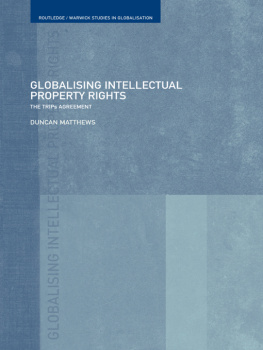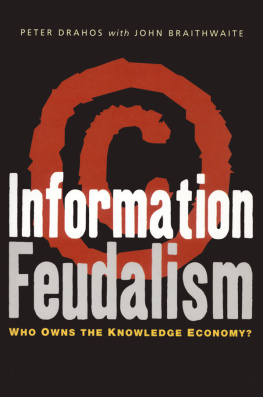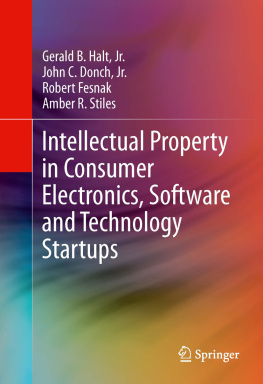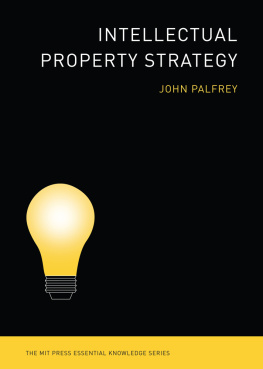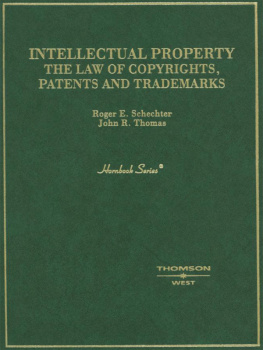Nuno Pires de Carvalho - The TRIPS Regime of Antitrust and Undisclosed Information
Here you can read online Nuno Pires de Carvalho - The TRIPS Regime of Antitrust and Undisclosed Information full text of the book (entire story) in english for free. Download pdf and epub, get meaning, cover and reviews about this ebook. year: 2008, publisher: Kluwer Law International, genre: Politics. Description of the work, (preface) as well as reviews are available. Best literature library LitArk.com created for fans of good reading and offers a wide selection of genres:
Romance novel
Science fiction
Adventure
Detective
Science
History
Home and family
Prose
Art
Politics
Computer
Non-fiction
Religion
Business
Children
Humor
Choose a favorite category and find really read worthwhile books. Enjoy immersion in the world of imagination, feel the emotions of the characters or learn something new for yourself, make an fascinating discovery.
- Book:The TRIPS Regime of Antitrust and Undisclosed Information
- Author:
- Publisher:Kluwer Law International
- Genre:
- Year:2008
- Rating:3 / 5
- Favourites:Add to favourites
- Your mark:
The TRIPS Regime of Antitrust and Undisclosed Information: summary, description and annotation
We offer to read an annotation, description, summary or preface (depends on what the author of the book "The TRIPS Regime of Antitrust and Undisclosed Information" wrote himself). If you haven't found the necessary information about the book — write in the comments, we will try to find it.
In this brilliantly conceived and authoritative work the eminent intellectual property specialist Nuno Pires de Carvalho focuses on the mechanisms, obligations, and opportunities of trade secret protection under the Agreement on Trade-Related Aspects of Intellectual Property Rights (TRIPS). With the powerful knowledge base derived from his long experience both at the World Trade Organization (WTO) and the World Intellectual Property Organization (WIPO), he illuminates the crucial relationship of antitrust and industrial property, clearly demonstrating in contrast to much received wisdom the intrinsic pro-competitive nature of intellectual property and of industrial property in particular. Using an extraordinary wealth of practical detail, and offering hundreds of pointed hypothetical and actual examples, Pires de Carvalho dispels the murkiness around such essential concepts and provisions as the following:
- the inevitable interdependence of industrial property and antitrust law;
- abuses of patent rights and the vexed issue of patents and monopolies;
- the legal implications of international exhaustion under Article 6;
- the meaning of balance of rights and obligations under Article 7;
- divestiture and the fruits doctrine under Article 32;
- international cooperation in identifying antitrust violations in licensing agreements;
- protection of confidential information in court proceedings;
- protection of undisclosed test data against unfair commercial use under Article 39.3;
- and the WTO Dispute Settlement Mechanism in the context of undisclosed information.
Of special value in this book is the author s far-reaching analysis of the controversial emerging field of test data protection in industrial property.
The TRIPS Regime of Antitrust and Undisclosed Information provides a practical and insightful explanation of the meaning of the relevant TRIPS provisions, of how they should be reflected in national law and how courts are expected to enforce them. It combines an easy-to-follow article-by-article commentary on the TRIPS Agreement with a theoretical scholarly analysis that makes of it an invaluable resource to all those who wish to understand industrial property rights at a deeper level. Lawyers, judges, scholars and government officials will find an abundance of information and legal analysis here that will help them identify antitrust issues and solutions to problems of trade secrets posed by the implementation of the TRIPS Agreement.
Nuno Pires de Carvalho: author's other books
Who wrote The TRIPS Regime of Antitrust and Undisclosed Information? Find out the surname, the name of the author of the book and a list of all author's works by series.


